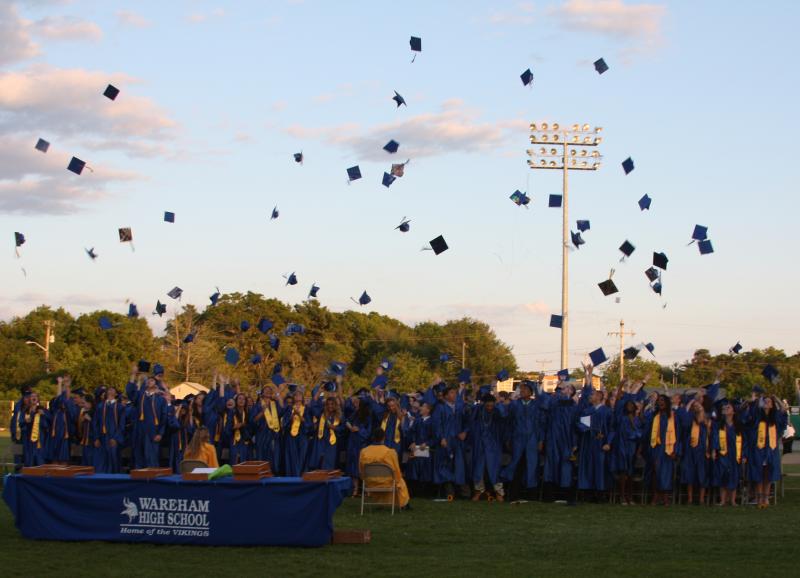Without more funding, Wareham High School's accreditation at risk
Wareham High School appears on track to lose accreditation.
The Commission on Public Secondary Schools of the New England Association of Schools and Colleges, which has accredited the school since 1960, recently issued a report with a long list of recommendations -- most of which would require more money than the school has available to spend.
The school undergoes a mandatory review process every 10 years, the most recent of which began last October, when a NEASC committee visited Wareham for several days.
Accreditation is a process completed by an independent agency, such as NEASC, that ensures that schools are providing a high-quality education and therefore that students' diplomas will be recognized by colleges and potential employers.
The report's findings come during a particularly tumultuous budget cycle for both the town and School Department — made difficult by decreasing revenues and increasing "fixed costs," such as health insurance, according to officials.
Though referred to as "recommendations," Wareham High School must complete the committee's suggestions in order to remain accredited by NEASC — which worries school officials, as the school budget for next year is already proposed below last year's amount.
"A school's initial/continued accreditation is based on satisfactory progress implementing valid recommendations of the visiting committee and others identified by the Commission as it monitors the school's progress and changes which occur at the school throughout the decennial cycle," according to the NEASC report.
School officials are expected to complete or be in the final stages of completion of the recommendations within five years — at which time it submits a five-year report.
In addition to many non-financial suggestions, the NEASC committee recommended the district:
- Provide the school's professional staff with "sufficient personnel, time, and financial resources" for the development and evaluation the curriculum
- Secure "sufficient funding to upgrade technology, equipment, instructional materials" that support teachers in their delivery of lessons
- Update the print collection in the library
- Provide an "adequate supply of working computers" for access to the school's electronic library and media resources
- Ensure "adequate staffing" so that the school can offer classes that are tailored to students' interests and course requests
- "Develop and fund a district-wide formal long-range plan to include programs and services, enrollment changes and staffing needs, facility needs, technology, and capital improvements"
- Provide permanent space for the programs in "portable classrooms" — temporary structures attached to the high school building
- "Replace/repair the leaky roof"
School officials briefly discussed the report's findings during the School Committee's April 4 meeting. The School Committee had just reduced the amount of money it is requesting for next year's budget to $25.1 million — putting it below last year's approximately $26 million figure — after learning that the town is short more funds than initially anticipated.
The budget will require staff layoffs — including a cut of more than 20 teachers — and cuts to programs, extracurricular activities, and sports.
The School Committee has proposed a Proposition 2 1/2 override to reduce teacher layoffs and debt exclusions to fund textbooks, technology, and repairs to the high school roof, which would need to be approved by voters — and are historically unpopular.
At the School Committee meeting, Chair Geoff Swett asked Wareham High School Principal Scott Palladino how the high school's accreditation would be impacted if the Proposition 2 1/2 proposals are not approved and the budget remains as-is.
"The budget, absent the debt exclusions and the overrides, destroys the accreditation of Wareham High School?" Swett asked.
Palladino responded: "Absolutely."
Swett later elaborated on his concern, noting that the school's budget figures would need to be reported to NEASC.
“Instead of improving on the things [NEASC] said to improve on," Swett explained, the school will have to report that "we've actually gone in the opposite direction.”
Janet Allison, Director of NEASC's Commission on Public Secondary Schools, was not available for comment.
NEASC rates schools on: core values, beliefs, and learning expectations, curriculum, instruction, assessment of and for student learning, school culture and leadership, school resources for learning, and community resources for learning.
Wareham High School is among the approximately 255 public secondary schools in Massachusetts that are accredited NEASC.
For the full report, click the link below.















